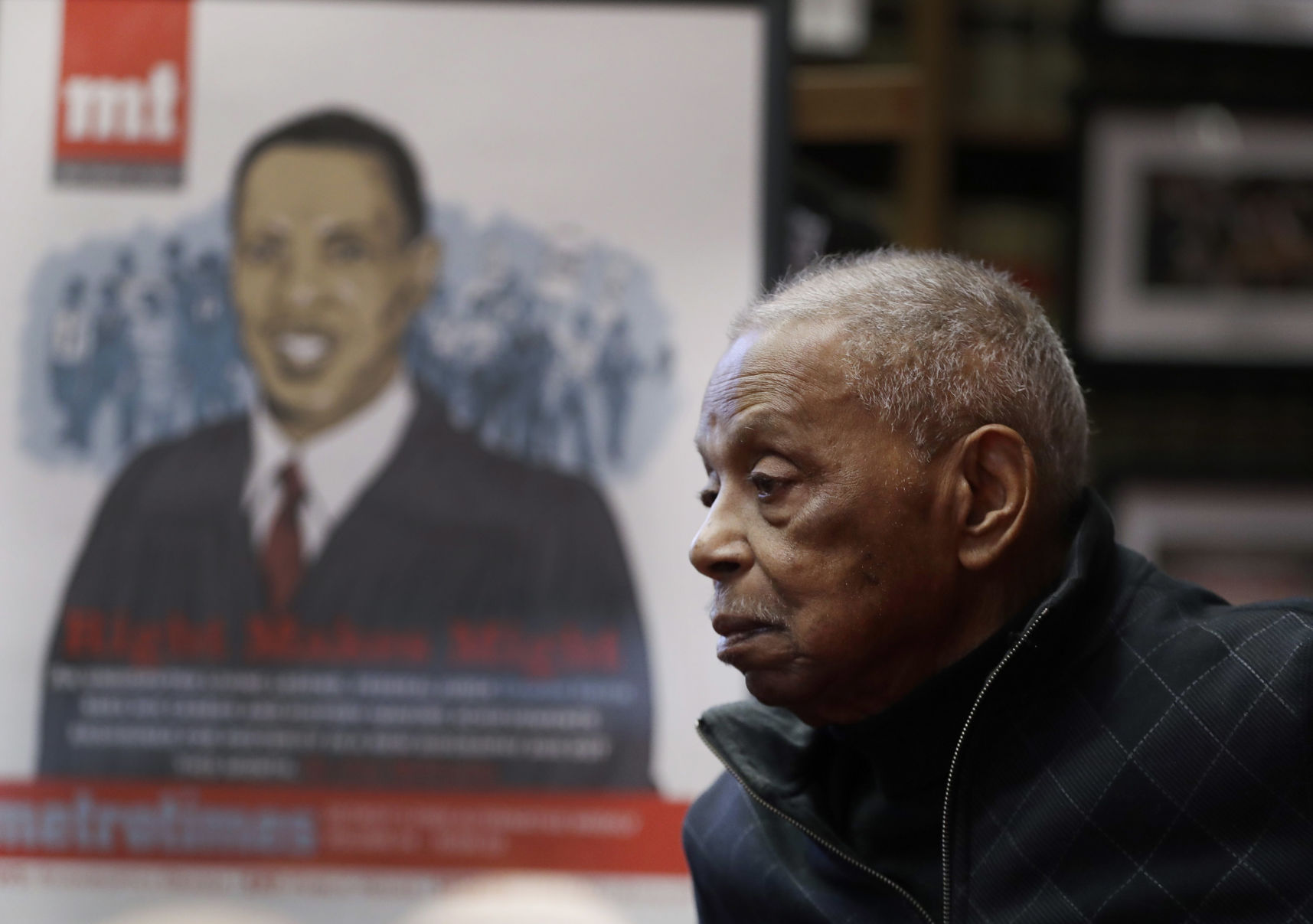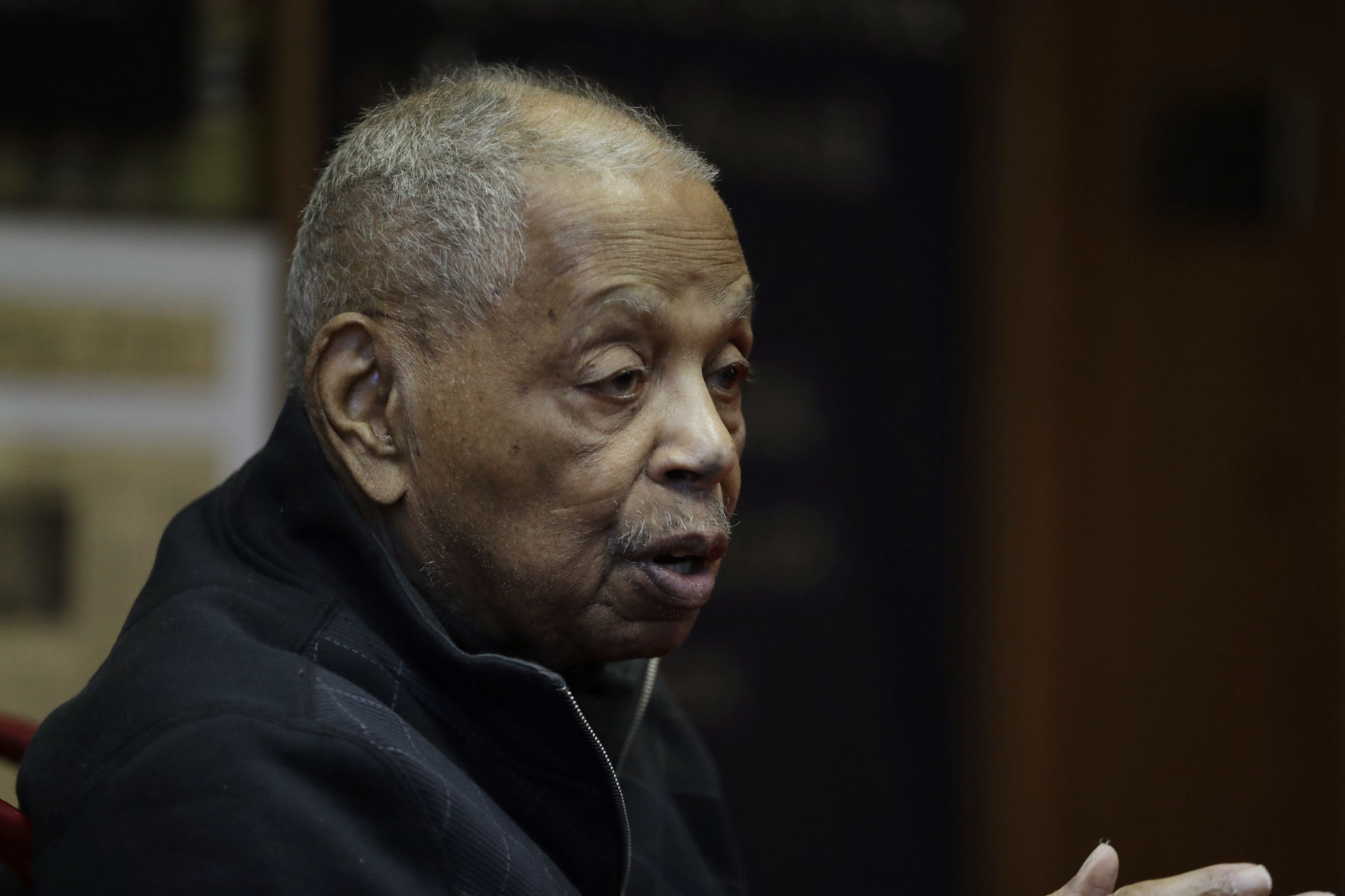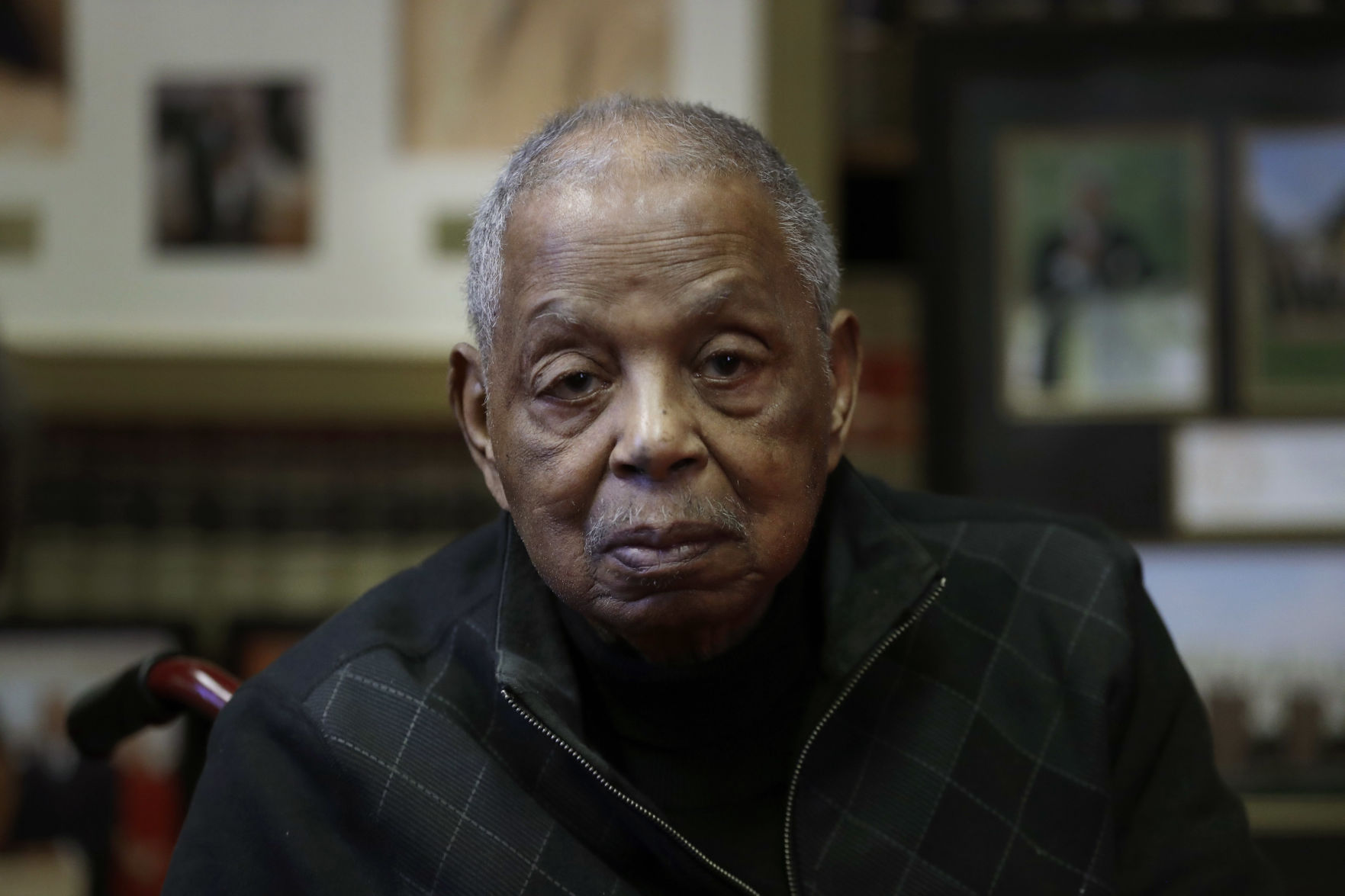DETROIT (AP) — Judge Damon J. Keith thinks back on his 50 years on the federal bench and remembers many tumultuous and significant times, including being sued by President Richard Nixon after ruling that wiretapping couldn’t be done without a
DETROIT (AP) — Judge Damon J. Keith thinks back on his 50 years on the federal bench and remembers many tumultuous and significant times, including being sued by President Richard Nixon after ruling that wiretapping couldn’t be done without a court order.
The 95-year-old from Detroit, the only African-American among six current federal judges who have served 50 or more years according to the Administrative Office of the U.S. Courts, still hears cases about four times a year at the 6th U.S. Circuit Court of Appeals in Cincinnati. His approach — in or out of the spotlight, on or off the bench — is the same: Fight for the Constitution, not with each other.
“Just treat everyone with dignity,” said Keith, who will be honored at a gala Saturday in Detroit for reaching the half-century mark.
The phrase “Equal justice under law,” which is etched onto the U.S. Supreme Court building in Washington, drives Keith and reminds him of lessons Thurgood Marshall taught him as one of his professors at Howard University. Marshall became the first black Supreme Court justice in October 1967 — the same month Keith, a prominent lawyer in his own right by then, was appointed to the federal bench.
He recalled Marshall saying, “The white men wrote those four words. When you leave Howard, I want you to go out and practice law and see what you can do to enforce those four words.”
“And that’s what I’ve tried to do,” Keith said last week at Detroit’s historic federal court building, where he’s had an office since President Lyndon B. Johnson appointed him to the federal district court 50 years ago.
In 1970, Keith ordered a bus policy and new boundaries in the Pontiac, Michigan, school district to break up racial segregation.
A year later, he made another groundbreaking decision, finding that Hamtramck, Michigan, illegally destroyed black neighborhoods in the name of urban renewal with the federal government’s help. The remedy was 200 housing units for blacks. The court case is still alive decades later due to disputes over property taxes and the slow pace of construction.
The wiretapping ruling against Nixon and Attorney General John Mitchell also came in 1971. Keith said they couldn’t engage in the warrantless wiretapping of three people suspected of conspiring to destroy government property. The decision was affirmed by the appellate court, and the Nixon administration appealed and sued Keith personally.
“That’s why I had to get a lawyer to represent me before the Supreme Court. And they affirmed me unanimously,” Keith said.
Keith remembered the wiretapping case going smoothly at first. He invited the attorneys for the U.S. government and the defendants, who were part of a group of white supporters of civil rights seen as radical by some and called the White Panthers, to his office. The defendants’ lawyers had been held in contempt of court by a Chicago judge, and Keith assured them things would be different with him.
“I served them coffee and doughnuts, we sat down, and I said, ‘Now, in this court we’re going to treat you men with dignity. When you get up to speak, the court will hear you and we’ll have a rebuttal by the other side, I’ll make a ruling and we’ll move on,'” Keith recalled.
Keith rose to chief judge in 1975. President Jimmy Carter appointed him to the appeals court two years later.
As an appellate judge, he ruled against another president, George W. Bush, saying he couldn’t conduct secret deportation hearings of terrorism suspects. Keith’s 2002 opinion contained the line, “Democracies die behind closed doors.” A similar phrase is now the slogan of The Washington Post, which has credited Keith.
Not all of Keith’s memories are about landmark cases. He recalled a case in which a defendant didn’t want to stand for a judge. Keith allowed the man to enter the courtroom after Keith was seated and then be escorted out before the judge adjourned.
Keith is just as committed to equal rights now as he has always been, said Peter Hammer, director of the Damon J. Keith Center for Civil Rights at Detroit’s Wayne State University.
Last year, as the lone dissenter on a three-judge panel in an Ohio voting lawsuit, Keith filled 11 pages with photographs of people slain in the civil rights movement and wrote: “I cannot forget — indeed America cannot forget — the pain, suffering, and sorrow of those who died for equal protection and for this precious right to vote.”
“He’s not going quietly into that great goodnight,” Hammer said.
———
Karoub is a member of AP’s Race and Ethnicity Team. Follow him on Twitter at https://twitter.com/jeffkaroub and find more of his work at https://apnews.com/search/jeff%20karoub.




